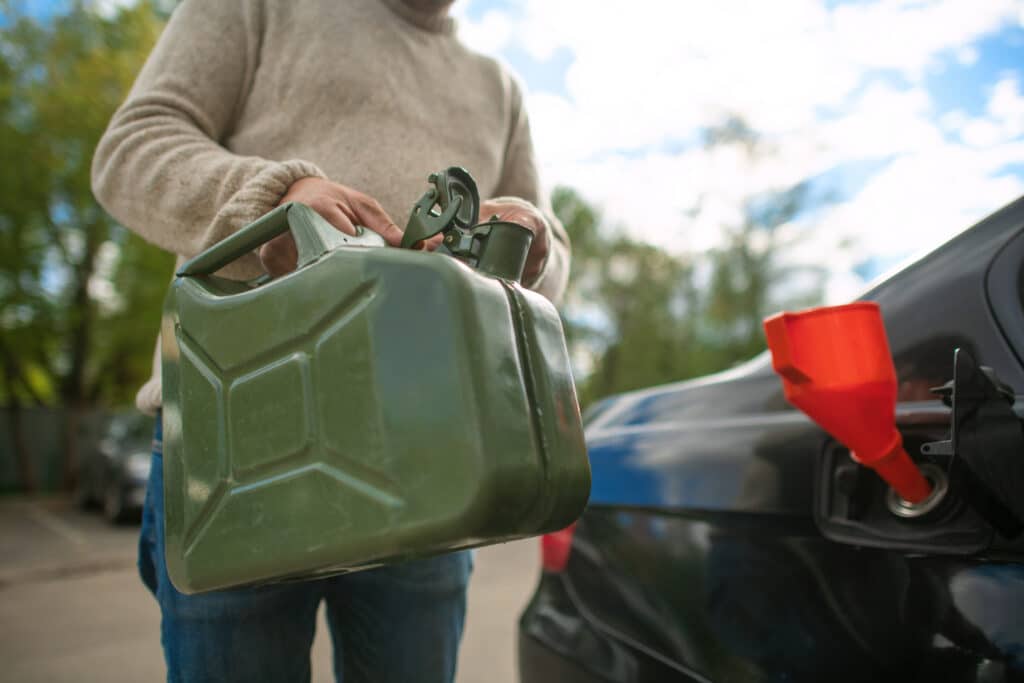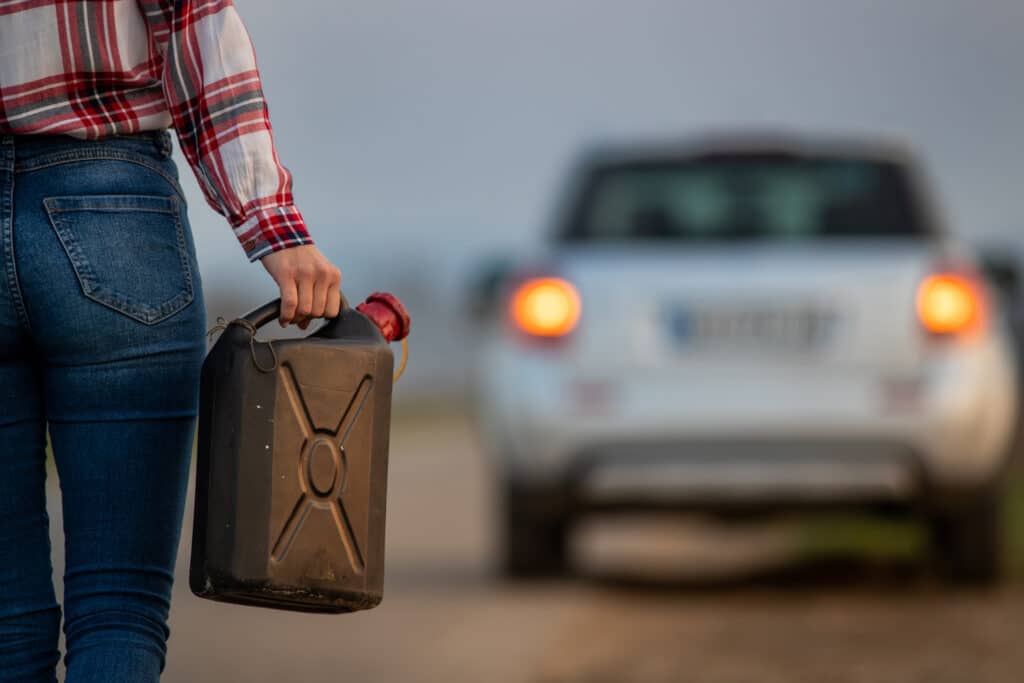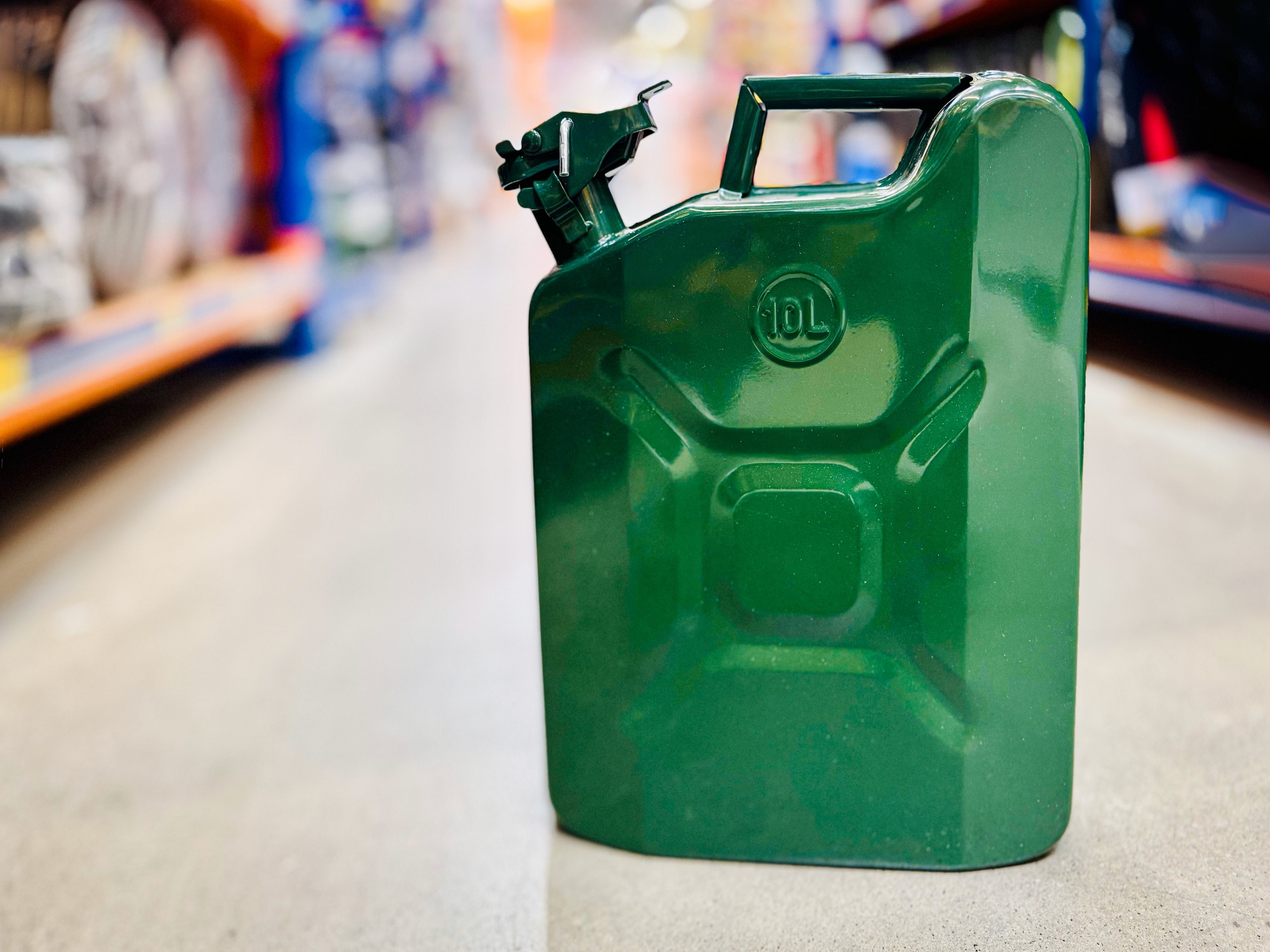In a world where the uncertainties of life can sometimes prompt us to prepare for the unexpected, the notion of storing fuel at home has become a topic of interest for some. Whether you’re a professional navigating the demands of agriculture or simply someone wanting to secure a reserve for emergencies, understanding the legal and safe ways to store fuel is paramount.
This blog aims to guide you through the intricacies of legally and safely storing fuel, covering things like permissible quantities, container types, safe storage locations, and the shelf life of different fuels. Let’s delve into the essential information that ensures your fuel storage is both compliant and secure.
What is a fuel can?
A fuel can is a vessel specifically designed to store petrol or diesel without fear of corrosion or exposure to the air.
Fuel cans are used in a professional capacity for occupations such as farmers and gardeners, but they are also useful for vehicle drivers. If you’d like to stock up when fuel is at a lower price or to store for an emergency. You should be aware though that fuel does have an expiry date.
Read on to find out how long you can store different fuels.

How much fuel can I legally store at home?
The Health and Safety Executive enforces that individuals should store no more than 30 litres of petrol without a licence. However, there are restrictions on the amount you can store in certain containers:
- In a Plastic container – up to 10 litres
- In a Metal container – up to 20 litres
- In a Demountable fuel tank – up to 30 litres
Redex’s 5L plastic fuel cans are ideal if you need to store fuel in an emergency, while ensuring that you’re following the regulations without a second thought.
Is it safe to store fuel at home?
Storing fuel at home poses significant risks but can be done safely if precautions are taken. The main issues with storing fuel are its flammability and danger if ingested, but these risks can be minimised.
Where should I safely store fuel at home?
Having the correct storage container is only half the battle. Ensuring that the container is in the correct place is also incredibly important. You should store your container in a well-ventilated area away from children/pets and living areas. We’d recommend somewhere such as a shed or a garage where it’s unlikely to be disturbed accidentally.
How long does fuel last when stored?
The time that fuel will last is largely dependent on what fuel it is and how it is stored. There are a multitude of factors that affect the long-term viability of petrol and diesel including temperature, contaminants and being exposed to the air.

How long does it last when stored properly?
If stored correctly, petrol will usually last about 6 months before it starts to degrade. While off petrol is unlikely to damage your car, it can limit performance and cause issues with things like starting the engine.
Off-diesel, on the other hand, can be damaging to an engine if it goes “gummy”, leading to clogged-up filters. Fortunately, diesel does store for slightly longer than petrol with a shelf-life of 6 to 12 months.
What happens if the fuel can leaks?
If your fuel can leaks, there’s a good chance that your fuel will go off unless you transfer it immediately to a can in full working order. Being exposed to the air will cause important components to evaporate making the petrol less efficient when used in your engine.
Does fuel go off?
As mentioned earlier, petrol and diesel have fairly short shelf-lives so stocking up for a rainy day is probably a bad idea. Petrol tends to last about 6 months before it has lost significant energy, with diesel lasting up to 12 months before it can start to damage vital components within your car.
So, hopefully now you have a better understanding of how to safely store fuel. While it’s convenient to have a reserve, it’s important to remember the rules and regulations.
Choosing the right containers and storage locations, coupled with an understanding of the shelf life of various fuels, means that you can navigate the world of fuel storage with caution. Check out the rest of our help and advice guides for more insights.
